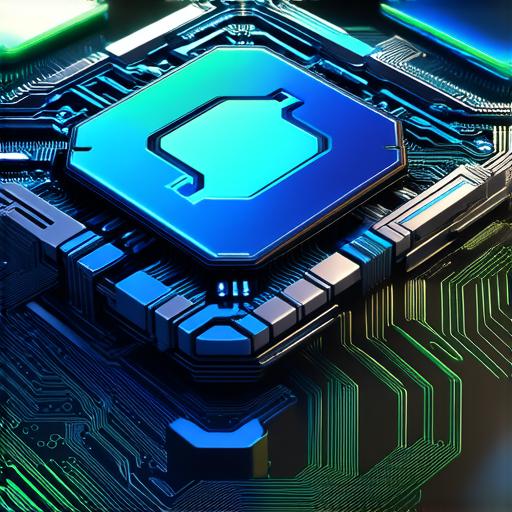Blockchain technology has been around for over a decade now, and its impact on various industries is undeniable. From finance to healthcare, blockchain technology is revolutionizing the way we conduct transactions and store data. One of the latest innovations in the blockchain space is Nano Blockchain. In this article, we will delve into the world of Nano Blockchain and explore its features, benefits, and use cases. We will also discuss how Nano Blockchain compares to other popular blockchains such as Bitcoin and Ethereum.
What is Nano Blockchain?
Nano Blockchain is a public blockchain that was launched in 2014 by a team of Chinese engineers. It was created with the goal of providing fast, secure, and scalable transactions at zero fees. Unlike other blockchains such as Bitcoin and Ethereum, Nano Blockchain uses a unique consensus mechanism called Byzantine Fault Tolerance (BFT) that allows for instant transactions with low latency.
bekannten Inhalten und Verwendungszwecken.
Key Features of Nano Blockchain
There are several key features of Nano Blockchain that distinguish it from other blockchains:
- Instant Transactions
Nano Blockchain is designed for fast and secure transactions with zero fees. It achieves this by using a unique consensus mechanism called Byzantine Fault Tolerance (BFT) that allows for instant transactions with low latency. BFT ensures that all nodes on the network agree on the state of the ledger, enabling transactions to be processed instantly without the need for confirmation from other nodes.
- Scalability
Nano Blockchain is highly scalable and can handle millions of transactions per second. It achieves this by using a hierarchical network architecture that separates read and write operations. This allows Nano Blockchain to process transactions quickly while maintaining high throughput.
- Smart Contracts
Nano Blockchain supports smart contracts, which are self-executing programs that automatically enforce the terms of an agreement. Smart contracts enable developers to create decentralized applications (dApps) that can automate complex processes and reduce the need for intermediaries.
- Confidential Transactions
Nano Blockchain supports confidential transactions, which enable users to send and receive payments without revealing the details of their transactions. This provides an added level of privacy and security, making Nano Blockchain an attractive option for businesses that handle sensitive data.
Benefits of Nano Blockchain
There are several benefits of using Nano Blockchain:

- Speed
Nano Blockchain is designed for fast transactions with low latency. This makes it ideal for use cases such as online payments, supply chain management, and gaming.
- Security
Nano Blockchain uses a unique consensus mechanism called Byzantine Fault Tolerance (BFT) that ensures the security of the network. BFT ensures that all nodes on the network agree on the state of the ledger, making it difficult for attackers to compromise the network.
- Scalability
Nano Blockchain is highly scalable and can handle millions of transactions per second. This makes it ideal for use cases such as financial services and e-commerce.
- Cost-Effective
Nano Blockchain is a cost-effective solution for businesses that need to conduct transactions quickly and securely. Unlike other blockchains, Nano Blockchain does not require miners to validate transactions, making it possible to process transactions without incurring any fees.
Use Cases of Nano Blockchain
Nano Blockchain has several use cases across various industries:
- Financial Services
Nano Blockchain is being used by financial institutions to enable faster and more secure payments. It can also be used for supply chain management, enabling businesses to track goods as they move through the supply chain.
- Gaming
Nano Blockchain is being used in the gaming industry to enable fast and secure microtransactions. It can also be used for in-game purchases, enabling gamers to buy virtual goods without leaving the game.
- E-commerce
Nano Blockchain is being used by e-commerce businesses to enable faster and more secure payments. It can also be used for supply chain management, enabling businesses to track goods as they move through the supply chain.
- Healthcare
Nano Blockchain is being used in the healthcare industry to enable secure and confidential sharing of patient data. It can also be used for medical research, enabling researchers to share data without compromising patient privacy.
Comparison with Other Blockchains
Nano Blockchain has several key differences from other popular blockchains such as Bitcoin and Ethereum:
- Consensus Mechanism
Nano Blockchain uses a unique consensus mechanism called Byzantine Fault Tolerance (BFT), which allows for instant transactions with low latency. This is in contrast to Bitcoin, which uses a Proof of Work (PoW) consensus mechanism that requires miners to validate transactions, making it slower and more expensive.
- Scalability
Nano Blockchain is highly scalable and can handle millions of transactions per second. This is in contrast to Ethereum, which has struggled with scalability issues and high transaction fees.
- Smart Contracts
Nano Blockchain supports smart contracts, which enable developers to create decentralized applications (dApps) that can automate complex processes and reduce the need for intermediaries. This is in contrast to Bitcoin, which does not support smart contracts.
- Confidential Transactions
Nano Blockchain supports confidential transactions, which provide an added level of privacy and security. This is in contrast to Ethereum, which does not support confidential transactions.
FAQs
1. Is Nano Blockchain secure?
Yes, Nano Blockchain uses a unique consensus mechanism called Byzantine Fault Tolerance (BFT) that ensures the security of the network. BFT ensures that all nodes on the network agree on the state of the ledger, making it difficult for attackers to compromise the network.
2. Can Nano Blockchain handle large volumes of transactions?
Yes, Nano Blockchain is highly scalable and can handle millions of transactions per second. This makes it ideal for use cases such as financial services and e-commerce.
3. Does Nano Blockchain support smart contracts?
Yes, Nano Blockchain supports smart contracts, which enable developers to create decentralized applications (dApps) that can automate complex processes and reduce the need for intermediaries.
4. Is Nano Blockchain a cost-effective solution?
Yes, Nano Blockchain is a cost-effective solution for businesses that need to conduct transactions quickly and securely. Unlike other blockchains, Nano Blockchain does not require miners to validate transactions, making it possible to process transactions without incurring any fees.
Summary
Nano Blockchain is a fast, secure, and scalable solution for businesses that need to conduct transactions quickly and securely. It has several use cases across various industries, including financial services, gaming, e-commerce, and healthcare. Nano Blockchain has key differences from other popular blockchains such as Bitcoin and Ethereum, including its consensus mechanism, scalability, smart contracts, and confidential transactions. Overall, Nano Blockchain is a promising solution for businesses that need to conduct transactions quickly and securely in a cost-effective and scalable manner.
